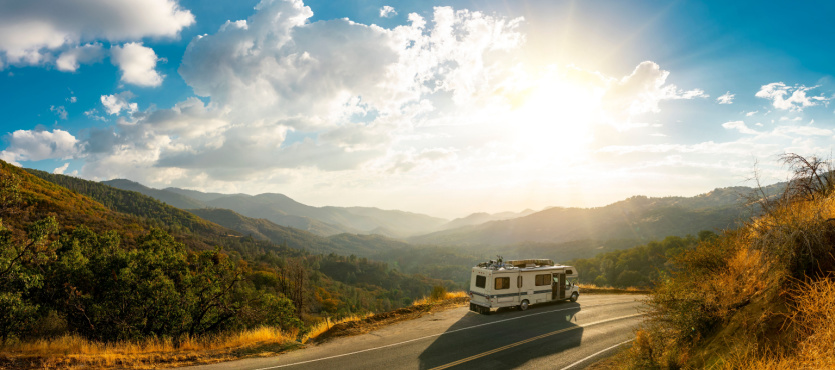Going on a road trip—whether as a family, with friends, or even solo—is an exciting affair that anyone can appreciate. Furthermore, what better way is there to enjoy your time on the road than to travel via an RV. Not only does it allow you to cover greater distances by not having to stop at a hotel to rest in the evenings, but you also have much more freedom to explore where you want and visit places that are otherwise too remote to reach.
While this might sound like an exciting prospect, and it is, traveling via an RV does require a bit more foresight and preparation than you may be expecting. To ensure you get on the road without a hitch, here are 5 steps to help you plan a successful RV road trip.
Consider Your Expenses and Budget
It should go without saying that any trip or holiday away from home will cost you. Although you may be fully expecting that, especially if you are considering renting an RV, there are some additional costs to operating one that you may not anticipate. For one—although this one you may already expect—RV gas tanks cost more to fill up and refuel.
But not only do you have to consider the costs of driving an RV, but there are also additional fees associated with staying at campgrounds and using their amenities, like power outlets, to recharge your RV for the next day. Whatever your plans are, RVs cost more money to operate, so be sure to keep that in mind when you plan your trip!
Spend Some Time Behind The Wheel Beforehand
Another thing to remember with RVs, especially if you are new to driving them, is that they handle quite differently from regular vehicles. RVs come in different shapes and sizes, so depending on the kind you are renting or purchasing, learning to drive them may take a bit more than hopping in the driver’s seat and acquainting yourself with all the controls and dashboards. Before you set out on the big day, take some time driving your RV around your home to get familiar with its handling. This will help you stay confident and safe on the big day.
Bring Enough Provisions
One of the greatest advantages of traveling via an RV is the degree of freedom it provides. While not being limited to staying close to a town or hotel can be liberating, there are some downsides to venturing off the beaten path: namely, you need to make sure you bring enough provisions. Not only do you need enough food for the duration of your trip, but you need to be mindful of how much water you bring. Too much of it may weigh your vehicle beyond its weight threshold, so bear that in mind!
Plan Your Route and Overnight Stops
While RVs enable you to go to remote places and camp outdoors, you still need to find somewhere to recharge for the next day and run utilities. When making your road plans, carefully research and consider where you can stop for a meal or for the evenings to recharge your RV. The last thing you want to deal with is a loss of power far from the nearest charging station!
Plan for Your Arrival
One thing that is easy to overlook is the time it takes to set up camp at your destination, especially if you arrive late and have to set up in the dark! RVs should not be driving as fast as most cars on the road, so expect to more time on the road at a slower pace. Try departing early in the morning to arrive at your campsite before dusk, as setting up after a long drive is hard enough, let alone having to do it in the dark.
Campark Resorts
Staying at Campark Resorts places you right by the world-famous Niagara Falls and the beautiful landscape surrounding this historic landmark. If you are considering visiting Niagara Falls in the upcoming season, consider booking an RV site at Campark Resorts!


